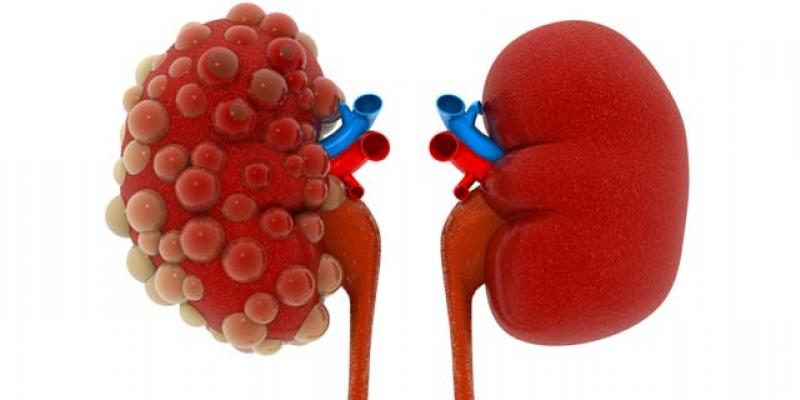Many people spent yesterday getting kids ready as we celebrated the return to school (parents celebrated, the kids not so much). What you may not have realized as you packed bologna sandwiches was that September 4th also marked PKD awareness day. PKD or Polycystic Kidney Disease is a genetic disease where fluid-filled sacks or cysts grow leading to kidney damage and eventually failure. The kidneys are a pair of organs about the size of your fist located in the left and right lower quadrants of your back. They serve as the natural filter of the body, removing waste products such as urea and ammonium. They are also responsible for regulation of blood pressure and for producing important hormones in the body. In PKD, multiple fluid-filled sacks grow, which damage the organs and cause the kidneys to become much larger — sometimes the size of a football weighing up to 30 pounds!
PKD is a genetic disorder meaning that it is inherited from your parents. There are two forms of the disease. The first is Autosomal Dominant PKD (ADPKD), which can be inherited from either parent who has the same disease. The risk of inheriting the gene responsible is 50%. The second form is Autosomal Recessive PKD (ARPKD) and it occurs when you receive faulty genes from both parents. The risk of ARPKD is 25% if both parents have a single defective gene.
Early on the disease the person may have no symptoms. The most common symptoms are flank pain and headaches. Other symptoms include frequent urinary tract infections, high blood pressure, kidney stones, blood in the urine, cysts in the liver or pancreas, heart valve problems, brain aneurysms and diverticulosis.
The main method used to diagnose PKD is an ultrasound. Sound waves generated and bounced off the kidneys to form echo patterns that detect the presence of cysts. The ultrasound can show both the number and size of individual cysts in the kidney and liver. Following the ultrasound, a CT scan can be ordered, which uses X-rays at various angles to detect very tiny cysts.
There is no cure for PKD. Current treatments involve trying to slow the progression of kidney damage. Controlling blood pressure, avoiding certain medication like ibuprofen, treating urinary tract infections immediately can help to reduce further damage. Take care of yourselves and each other.







